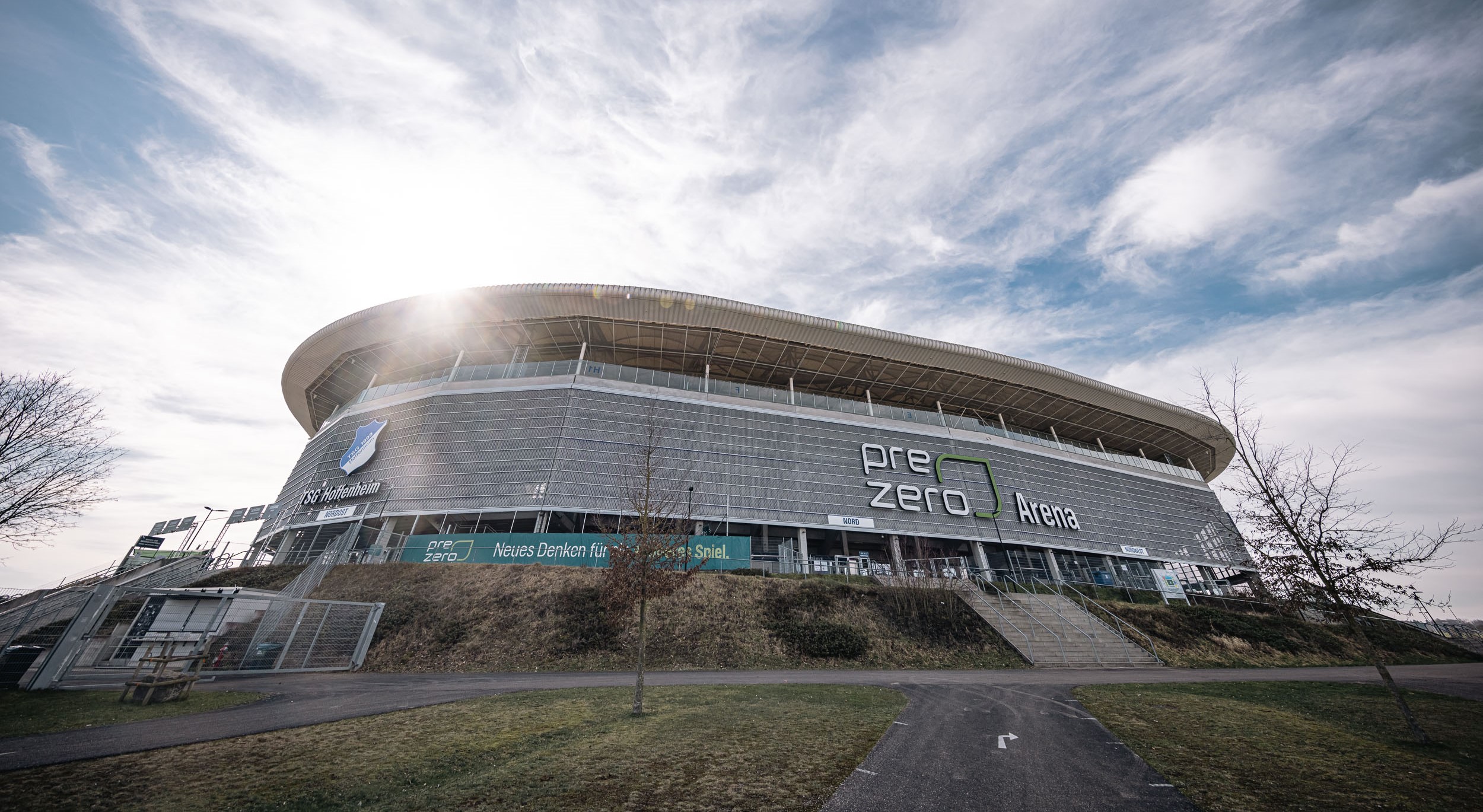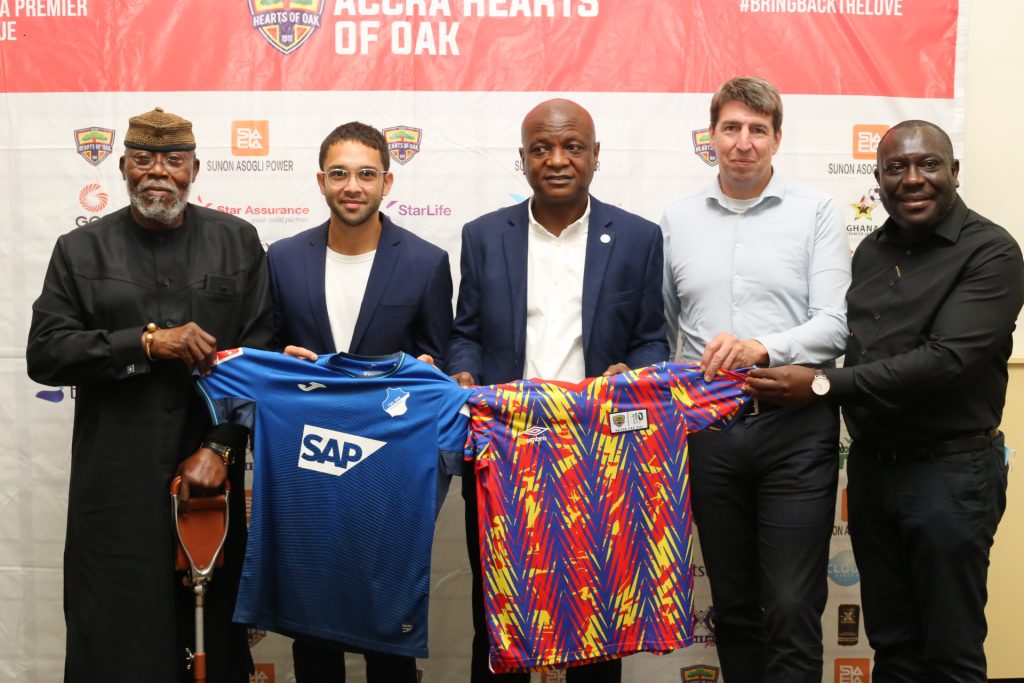
We are facing immense global challenges such as the climate crisis, loss of biodiversity, drought, famines, displacement, gender inequality, nationalism leading to military conflicts, loss of trust in our authorities and many more closely related issues.
What does this have to do with a Bundesliga football club?
In many countries, football is widely regarded as a cultural asset and benefits from high social acclaim, particularly in generating substantial income through media rights, fans, and sponsorships. In countries like Germany, the interconnection between societal matters and the role of sports has become inseparable, as fans, sponsors and the media now demand responsibility for socially relevant topics. This mounting expectation has increased significantly in recent years, signalling that football could lose its special status and, consequently, the basis of its underlying business model should it fail to demonstrate responsibility towards the issues of our time.
TSG Hoffenheim has engaged in extensive discussions regarding these matters since 2017 and unveiled its future strategy, “TSG is movement,” in 2018.
We have identified five critical areas of focus: “innovations,” “employees and players,” “youth and fans,” “ecology,” and “Africa.” These fields of action emphasize the unity between the club’s development and creating social value, which is evident in many projects: holistic and successful training of young people at the broad and top level, data-supported talent development and sharing of knowledge with scientific partners, our climate ticket and, of course, the measurement and reduction of our carbon footprint. We are committed to the Race to Zero and are part of the UN Sports for Climate Action Framework. In spring 2023, the club was certified as the first “Zero Waste” stadium in Europe, earning bronze status, which means that we are reaching a recycling quota of 87%.

The focus on the carbon footprint swiftly shifts the attention to the African continent. Despite accounting for only 4% of global cumulative carbon emissions, Africa is already suffering from the consequences and adverse effects of climate change today. Raising awareness about these issues and acknowledging our responsibility is a primary motive behind our international perspective within the ‘TSG is movement’.
What does this mean in concrete action items of strategic alignment?
Concerning Africa, we maintain a close collaboration with the German government in the area of sports for development. Additionally, we offset our carbon footprint by supporting climate protection and reforestation projects. Furthermore, we have established our own textile brand called “umoja”, which is exclusively produced and 100% made in Uganda.
Furthermore, it has an exemplary impact on our sponsoring strategy, as it no longer primarily uses the reach and awareness of football as its foundation. Instead, it incorporates the broader social dimension that extends beyond the fields of action of ‘TSG is movement,’ thereby enabling us to contribute to the United Nations’ sustainable development goals. In addition to the traditional rights packages, we collaboratively identify socially relevant topics with our partners, which are then integrated into the design of the partnerships. This approach ensures that our partnerships reflect our commitment to addressing and promoting significant social issues.
The hypothesis suggests that in addition to the quantitative impact achieved through other platforms and reaching additional target groups, such partnerships yield a more substantial effect than traditional engagements. This notion has been supported by a statistically significant nationwide study by the University of Mannheim. The study demonstrated an average improvement of 25% across all levels of sponsoring impact, including activation perception, sponsor evaluation, recognition of the sponsor as a sustainable company, and willingness to speak positively about the sponsor. As a result, we can prove the existence of benefits for the club, the sponsor and society as a whole. We call this distinctive strategy the Common Value Sponsoring Approach.
Some time ago, when the Accra Hearts of Oak were looking for a cooperation partner, we engaged in discussions about our holistic training philosophies and the clubs’ social and ecological ambitions. It became apparent that there was a significant alignment in our respective approaches and attitudes. In addition, our existing partnership with FC Cincinnati, which already embraced similar themes, further reinforced the compatibility and shared values as a basis for developing a novel collaboration framework across three continents.

Based on our collective analysis, it was concluded that a conventional partnership involving occasional visits or friendly matches would not be meaningful. As a result, we jointly established the “Common Value Club Alliance” (CVCA) under the motto “Three continents. Three Clubs. One mission”. This alliance represents a collaborative effort aimed at achieving a shared objective.
The mission of the CVCA is to create a holistic development platform for the partners that promotes excellence on and off the field while adding value to people, the planet and society. We are open to expanding this network within the realm of sports and collaboration with other organizations, companies and government institutions. Our key objectives revolve around sharing knowledge on and off the field, unlocking the full potential of talented football players, making a positive impact and creating and implementing sustainable business models together.
This is the basic idea of our Common Value Approach, which can ultimately be transferred to all fields of the football business model and serves as the essence of true sustainability. We are thus following the motto of the Africa Football Business Summit: #TransformingOurGame
